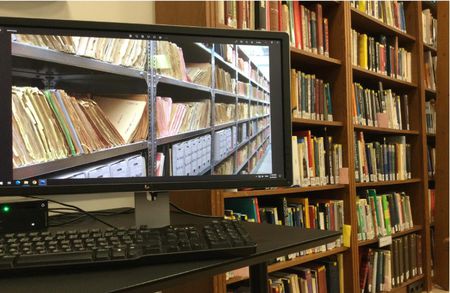A pan-European survey on access to archives, commissioned by the Council of Europe, identifies novel challenges and outlines opportunities for improvement. Iván Székely, Senior Research Fellow at the Blinken OSA Archivum, played a key role in the study, and co-authored its Summary Report, now available online.
The Council of Europe (CoE) adopted its Recommendation R(2000)13 on a European policy on access to Archives after recognizing the effect the political changes of the early 1990s had on the accessibility of public information and historical documents, which necessitated a system of legal and professional guidelines. Although the resulting Recommendation is a nonbiding document, it does make the expectations of the democratic community apparent to the 46 CoE member states.
To track if the Recommendation was followed, the CoE initiated the first pan-European survey in 2003, the results of which were published in the form of a handbook. Twenty years later, the survey was repeated, also exploring the impact of new information and communication technologies. Senior Research Fellow at the Blinken OSA Archivum Iván Székely took a leading part in both surveys, working together in 2003–2004 with the late Charles Kecskeméti, and in 2022–2023 with Michael Friedewald and Murat Karaboga from the Fraunhofer Institute ISI.
The team reached out in autumn 2022 to 46 national, 20 regional, and 20 municipal archives, as well as to 77 academic organizations and 103 NGOs, to participate in a survey comprising a questionnaire and in-depth interviews. After having processed the thus accumulated data, the researchers submitted their report to the CoE, which the Committee of Ministers approved this week; the full report will be published in print in the future, but a Summary Report is now available online.
The Summary Report on the Implementation of Recommendation No. R (2000) 13 of the Committee of Ministers to Member States on a European policy on access to archives details if and how the Recommendation is represented in national legislations and institutional policies on the one hand, and followed in practice on the other. While “national legislation in most countries now complies with the Recommendation entirely,” the researchers noted that “access conditions suggest that this is not always the lived practice.” Comparing the surveys conducted 20 years apart, the team found that the “official secrecy and classified data” as the main challenge in 2003–2004 has by now been replaced by the tension between transparency and privacy. “Or in other words: while in the early 2000s laws and legal practices were often designed to protect state interests against citizens, today laws focus more on safeguarding citizens’ rights.” In general, access to archives improved considerably in the past 20 years; a number of routines in discriminating users and unlawfully blocking access, however, proved lasting.
Concluding that the Recommendation remain valid even in the changed IT and communications environment, the Summary Report highlights that “the new archival practices and the new expectations of users . . . may make it necessary to revise the provisions of the Recommendation, and amend them where necessary,” and includes suggestions for a future updating.
(Photo: Lenke Szilágyi)


